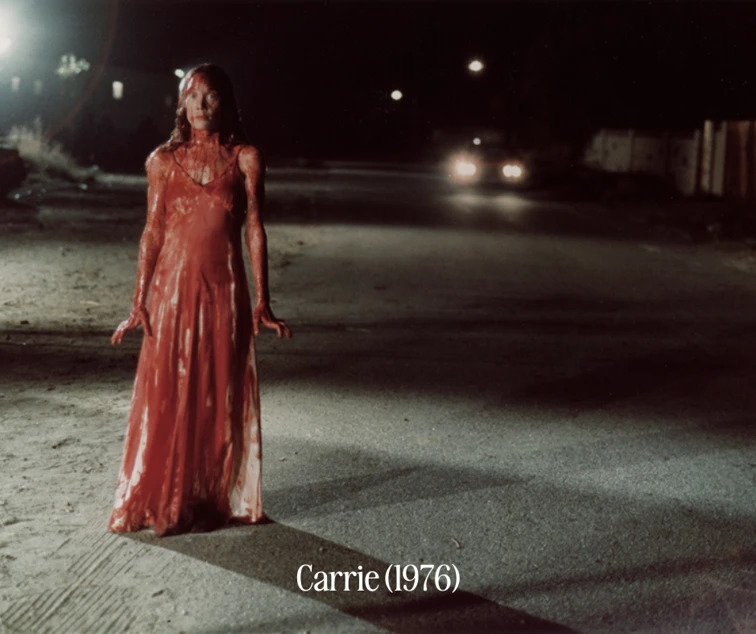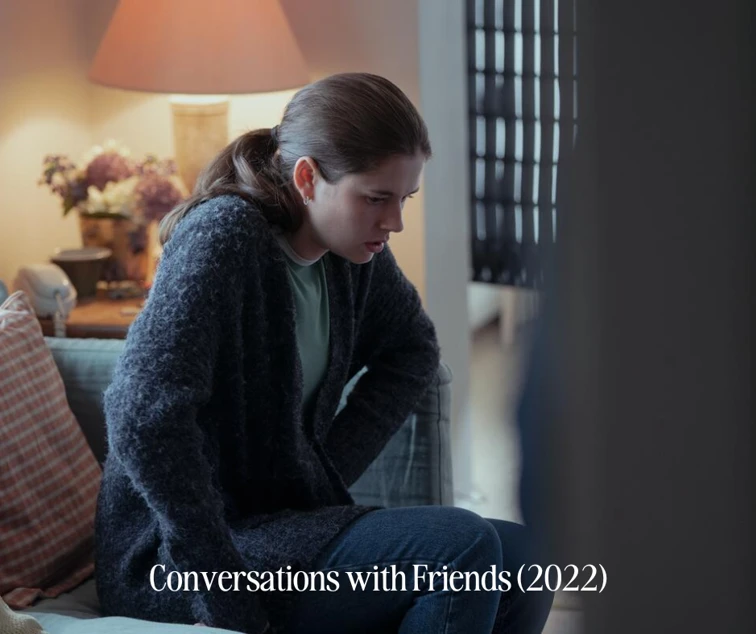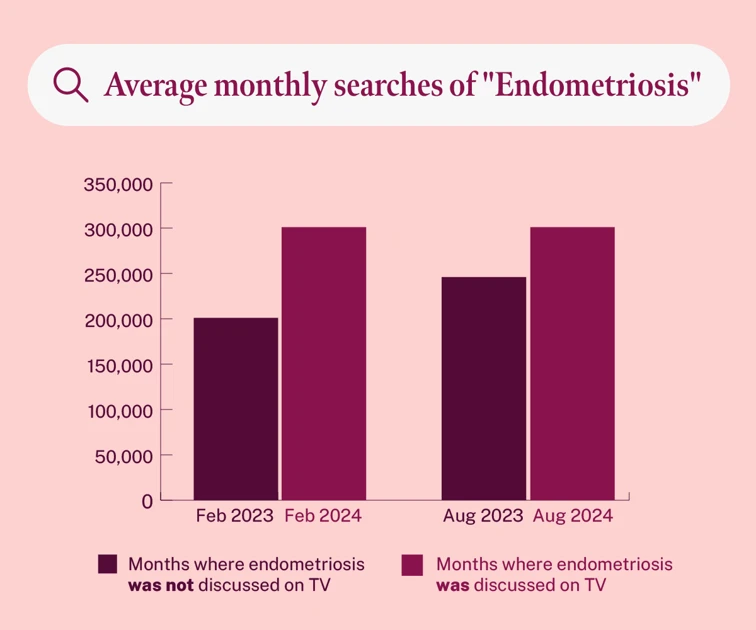Menstruation in media makeover: how representation matters

Let’s be frank - periods can feel like a bit of a taboo topic. Despite half of the world having personally experienced periods at one time or another in their lives, there is a significant lack of realistic representation in the media. This is something that we at Evana® think is a missed opportunity.
Accurate representations of periods can make a huge difference. It’s an easy way to highlight menstruation issues, like irregular or heavy periods, and to bring attention to possible treatments that help alleviate symptoms. In this article, we’ll explore how periods have been portrayed in TV, news, and movies—see what’s worked, what’s missed the mark, and why it all matters.
Poor representation
A 2023 ActionAid poll found that in the UK, 22% of young women and people who menstruate (aged 18-24) felt embarrassed during their period, which is a significant increase from 8% in 2022. Of those respondents, 30% said they felt ashamed because people would see them taking period products to the toilet. A further 58% said it was because of fear of leaking onto their clothes. The final 12% of respondents said their embarrassment stemmed from jokes made about their period by a partner, friends, colleagues or parents.
Jibes might seem harmless enough, but when it comes to period jokes in the media, they can toe the line between funny and offensive. Menstruation is something that is rarely explored in the media, and this can lead to people being ignorant about it. The times that it is shown, it’s often in the form of an embarrassing experience, or a distasteful joke, and let’s be honest, usually at the expense of women.
We all love a good comedy film, but sometimes “comedies” like Superbad and Dirty Love just don’t cut it. Both these films depict the experience of a period as something dirty and gross. They’re not alone in suggesting periods are embarrassing, as even iconic films such as Mean Girls include scenes that suggest that being open when talking about periods is inappropriate or uncomfortable. It is situations like these that can lead girls and women to feel that their periods are something that they should be ashamed of.
For film buffs and fans of horror, many will recall that one of the first depictions of a period on screen was in 1976’s Carrie. It was a step in the right direction for feminism, however looking through a modern lens, it is not a good depiction of a period. Carrie was revolutionary in its time; however, critics have described the period scene as intentionally gory, traumatic and horrific. This intentional direction casts a negative light on the experience of a first period.
Films like Carrie often portray the experience of a period as painful, which can give viewers the misconception that pain is a normal part of having a period. It’s important to remember that while you may experience some discomfort when on your period, severe pain is not normal. Normalising the concept of severe period pain can have big impacts and may even deter people from seeking medical advice or even pain relief. If your periods are consistently very painful, to the point of affecting your day-to-day life, you should seek medical help. In addition, if your periods do cause pain, you shouldn’t feel deterred from seeking pain relief.

Good media representations
For those of us who love a spot of telly, you might have seen that in recent years, there have been more TV depictions and discussions that focus on periods. If you want to see some good examples of periods in modern media, TV shows such as Emmerdale and Degrassi: Coming of Age and films like 20th Century Women all have different, but excellent inclusions of menstruation, looking at topics such as a first period and conditions like premenstrual dysphoric disorder (PMDD).
One particularly stong example of period inclusion happened in a storyline in the soap opera Emmerdale. The storyline focused on the character Cathy Hope and her experience of a menstrual disorder. In the show, Cathy suffers from volatile mood swings such as angry outbursts, irritability and feeling overwhelmed. Ultimately, her GP arrives at a diagnosis of PMDD. Once she has this diagnosis, Cathy is relieved at having an answer, but frustrated that the only treatment she will receive is to relieve her symptoms rather than cure the disorder.
It might be surprising to hear, but in a recent statement, Laura Murphy, the Director of Education & Awareness at IAPMD, explained: “The average time for accurate diagnosis of PMDD in the UK is 12 years. We hope that through Cathy’s storyline and PMDD being shown on mainstream TV, viewers might find answers to their suffering a lot earlier.”
Another brilliant film representation of a first period is Disney’s Turning Red. Disney cleverly depicts the life of 13-year-old girl Mei, who, when overwhelmed, turns into a giant red panda, which is a metaphor for her getting her first period. Even though the transformation is credited to a “curse” passed down from an ancestor (which is the focus of the film) it is a light-hearted depiction of the changes a girl goes through during puberty and the overwhelming feelings that can accompany it. Turning Red is a great film for parents who are looking to explain the changes girls go through during puberty to younger audiences.
Film is not the only form of media that can include good representation, and for avid readers, representation in books is even more important! In her debut novel, Conversations with Friends, Irish Author Sally Rooney, Sally details the lives of four people: two college students and a married couple in their 30s. Francis, the focal character and narrator of the story, experiences severe endometriosis, frequently passing out and eventually being hospitalised because of her condition. For a book published in 2017, before Endometriosis was as widely talked about as it is today, Rooney set the trend for proper inclusion. In 2022, the book was adapted into a TV show starring Alison Oliver as Frances. More recent novels such as Coco Mellors’ Blue Sisters are further exploring the significant impact of endometriosis and menstrual disorders on people’s lives.

Representation in real life
Representation isn’t just limited to fiction. Some of the most recent and best representations out there come in the form of celebrity and influencer voices. In the last few years, a growing number of celebrities have opened up about their own period experiences. One such celebrity is American actress and singer Zendaya, who described getting her first period as “a weird transitional phase.”
For big fans of celebrity and reality stars, the stories of Demi Brown from Love is Blind and American singer-songwriter Halsey might be familiar. Both women have talked openly about their experience with endometriosis, which has promoted awareness of the condition. Demi Brown’s recent interviews have highlighted the importance of discussing menstruation in the media. When looking at the search volume data on endometriosis, it shows that in August of this year (Love is Blind’s UK release date), searches for “endometriosis” increased by just about 20% when compared to the previous year.
Similarly, after an interview with obstetrician and gynaecologist Dr Larisa featured on morning news show This Morning in February 2024, a stark increase (almost 50%) was found in the average search volume for “endometriosis” (compared to February 2023). In the interview, Dr Larisa explained the condition and answered call-in questions about it.
This correlation between representation in the media and search volume suggests that the more discussion is seen on television, the more the general population becomes aware of these conditions and their impacts on menstrual health. As we see more inclusion of periods on TV, we can hope to see more open dialogue around menstruation.

In recent years, we have seen more news media start to discuss the topic of menstruation on their shows. Another great case of this is that, in September 2024 This Morning once again talked about endometriosis and spoke with Dr Nitu Bajekal, who has been tirelessly working to raise awareness about endometriosis. In this interview, Dr Bajekal emphasised that periods should not be painful and that period pain that impacts your day-to-day life should not be ignored. On the show, Dr Bajekal also listed other menstruation-related conditions that can cause heavy periods, such as fibroids, endometriosis and polyps.
As daytime TV shows such as This Morning become more open about the topic of menstruation, they improve the visibility of periods, helping to disprove stereotypes and encouraging individuals to have more open conversations.
Interviews and celebrities aren’t the only ways representation can be shown. Hygiene and health company Bodyform has also been making waves with its recent and rather dramatic TV advert, Never Just a Period. The ad’s clever use of dramatic paintings, shots of women’s everyday experiences (some exaggerated in a rather funny way), and orchestra music emphasise how intimidating having periods is and how period care needs to be taught. The ad concludes with two screens asking, “What do you wish you had been taught?” and stating,” It's time for a world that actually understands our bodies.” This hammers home how, even today, education on women’s health care can be limited.
Let’s not forget - women aren’t the only people who have proven that periods are something that we can freely discuss. Another celebrity who openly talks about the subject is comedian Bert Kreischer. In his Netflix special Hey Big Boy, Bert openly talks about his daughter’s first period when she asked to hold a “First Period Party”.
While his retelling of the experience is funny, it also shows how his daughter felt confident talking to him about it. In addition, Bert’s openness to discuss it with his audience emphasises the normality of this experience as a father of a young girl. By talking and joking in a light-hearted manner that doesn’t shame his daughter(s), Bert also pokes fun at the stereotype of this experience being a taboo subject. Bert concludes this discussion with his hopes that every father can experience a “First Period Party” with his own daughter(s).
At the end of the day, representation matters. As the examples prove, through increasing visibility and representation of menstruation in media, we can normalise the experiences that those who menstruate have throughout more than half of their lives.
Seeing menstrual health topics in fictional media and influential public figures discussing personal experiences can have a normalising effect and make people feel empowered to share their stories. As we see this trend of casual conversations continue, we hope that this promotes more education and awareness surrounding menstrual health, helping people to find the answers they need.





